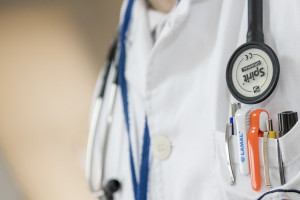
Research from experts at Michigan Medicine shows that significant language-based disparities exist in patients’ access to cancer care services, and it’s well before their first appointment with a doctor.
The audit study set up simulated patient calls from English and non-English speakers to the hospital general information lines at 144 randomly selected hospitals across 12 demographically diverse states.
The rationale provided for contacting the hospital general information line is that it serves as an initial entry point for many patients who are seeking information about hospital services, and therefore, is a highly relevant site to evaluate cancer care access.
Despite the calls being made to hospitals in the three most common spoken languages in the United States, researchers found that the Spanish-speaking and Mandarin-speaking patient callers were provided with next steps to access cancer care only 38% and 28% of the time, respectively, significantly less than the 94% of English-speaking patient callers who were provided with next steps to access cancer care.
“If cancer patients cannot access information about where to get appropriate cancer care services, what other critical information are they not able to access within our current healthcare system?” said Debbie Chen, M.D.
Chen proposes various potential interventions for hospitals and healthcare systems to implement to mitigate these communication barriers.
For example, the automated messages could be accessible in different languages, and those automations could always redirect to a live person instead of disconnecting when callers don’t provide a response to menu commands.
In addition, in situations when a language interpreter is needed, the hospital general information personnel could remain on the call, as language interpreters may not be able to provide the requested information about hospital-specific services.
We are an independent charity and are not backed by a large company or society. We raise every penny ourselves to improve the standards of cancer care through education. You can help us continue our work to address inequalities in cancer care by making a donation.
Any donation, however small, contributes directly towards the costs of creating and sharing free oncology education.
Together we can get better outcomes for patients by tackling global inequalities in access to the results of cancer research.
Thank you for your support.